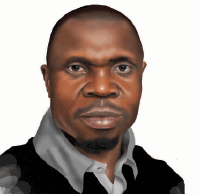In a tiny book, Politics Companion, there is the story of an American satirist, Ambrose Bierce, who wrote an incomparable book called The Devil’s Dictionary, a unique work of lexicography in which he gave vent to some very personal and queer definitions of words.
Bierce defines politics as strife of interests masquerading as a contest of principles; which also means the conduct of public affairs for private advantage. In other words, even if what a politician says seems to be in the interest of the public, he is basically advancing his personal ambition.
He defines the politician as an eel in the fundamental mud upon which the superstructure of organised society is built. By this definition, the politician thinks so much of his self-importance that when he wriggles, he mistakes the agitation of his tail for the trembling of the edifice. That’s self-deceit.
Politicians play ugly, nauseating games with words. They choose words deliberately and apply them mischievously to achieve some hideous intentions. Almost all the time, they speak before they think. And what they say about their opponents must traditionally be negative.
I don’t know how such politicians feel when some of their utterances are played back to them later. Do they regret or punch the air? Shouldn’t it feel like a bad dream to say stupid things?
One so-called senior politician, who could be described as a statesman, has often been quoted as saying a few years ago that if he did not win a particular election, the country would become ungovernable for the eventual winner. He lost that election.
In a country where the rule of law is respected and people are held accountable for their utterances, with Boko Haram currently killing people and practically making the country “ungovernable”, somebody would have been asked to explain something to the rest of us.
Most times, it is not what people say that matters; what matters most is who says what. The voice behind the words is what gives weight to those words. Anybody can talk; but not everybody’s talk carries the same weight in terms of crushing impact and reaction.
Words are powerful instruments of war. Words cause war tanks to roll. Words bring peace. Words are like missiles; they destroy. Words are like good ideas; they build. A well-aimed word is like well-positioned arrows. Its effect can be either devastating or soothing, depending on the target and purpose.
A word of command was what those pilots with blood-shot eyes needed to invoke the Hiroshima havoc. It was just a word from Barack Obama that brought down Osama bin Laden.
Each word politicians apply in a given situation is meant to please their supporters and hurt the opponents. As long as they gain popularity and, perhaps, win votes, both the nation and their opponents can burn; they don’t care.
Politicians love headlines. And, of course, words are the ingredients that cast screaming headlines. The irony, however, is that politicians are only excited about headlines that favour them and humiliate their opponents; headlines that give them advantage – due and undue.
I saw a headline in the Punch newspaper of Wednesday, August 6, 2014 that set me wondering. It read: Jonathan incompetent to rule Nigeria – Tinubu. For the record, Tinubu, as used in the headline, refers to the former governor of Lagos State, Bola Tinubu.
He stated this on Tuesday at Osogbo, Osun State, during a rally for the re-election of Osun State Governor, Rauf Aregbesola, a relatively popular governor whose ordinary style of leadership has earned him applause, but whose political utterances are sometimes weird.
It was a mightily scandalous headline that cast aspersions on the person and office of the President of Nigeria. Despite the satisfaction of political advantage, such a headline might have brought to Tinubu, it does not erase the perceived littleness of the mind that conceived it. Why is Jonathan incompetent to be president?
I took time to read through the story. To be fair to Tinubu, there was no direct quotation in the story indicating that he used the word ‘incompetent’. It could only be implied.
In the dictionary, ‘incompetent’ refers to someone who is not legally competent; a person of inadequate capability or fitness; a person who lacks the requisite capacity or qualification to do something.
What this means, in the understanding of the respected ex-governor, is that Jonathan is first not legally fit to govern because either he does not have the ability as defined by him, not the 1999 Constitution, or he lacks the requisite qualification to hold the office of president.
I am not interested in the political advantage that statement gives to the speaker. This is also not about defending Jonathan. I have no business doing that. I am neither a politician nor his employer; so I’m not in any way qualified to speak in his defence.
My concern is the moral issue. As governor of Lagos State, how would Tinubu have felt to wake up one morning and see a headline, Tinubu not competent to be governor?
Men of honour should learn to say honourable things. Like Arthur Nzeribe once told me, even among thieves, there is honour. There should be honour among our politicians. The office of the president of Nigeria is a sacred institution. It must not be abusively demystified with such political grandstanding.













